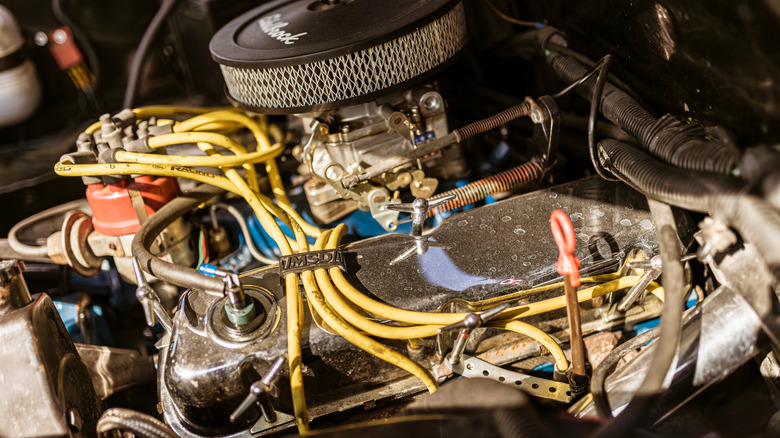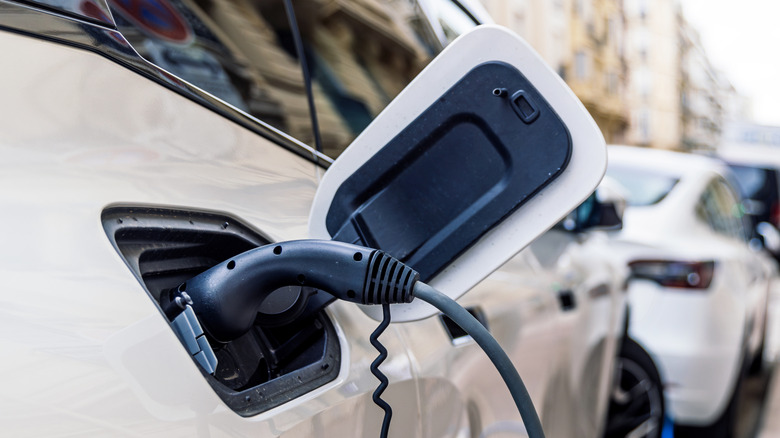How Often Should You Replace Your Car's Spark Plug Cables?
Spark plugs are essential to the running of a vehicle, helping ignite the mixture of air and fuel to provide combustion to the engine. There are three specific parts of a spark plug, a central electrode, a ground electrode, and a resistor wire that is wrapped around them. Many experts recommend that drivers replace their spark plugs every 100,000-miles or so, which many modern vehicles are capable of reaching and surpassing. There are different types of spark plugs, and drivers can have a traditional system that employs a spark plug cable or a coil-on-plug system where the spark plug sits on top of the engine cylinder.
Spark plug cables, also known as spark plug wires, are what allows electricity, or spark, to run to the spark plugs to help in combustion. Like every in-vehicle system, spark plug wires eventually break down and need to be replaced as they are used. Experts recommend that spark plug cables should be replaced every 30,000 to 70,000 miles, with some lasting up to 100,000 miles. While that is a pretty broad range, there are a few telltale signs that your spark plug cables need replacing.
How to tell if your spark plug cables need replacing
If you're unsure of whether or not your vehicle's spark plug wires need replacing, and you don't want to bring it into a mechanic for servicing, there are a couple of indicators that will tell you if it's time. A few indications that your spark plug cables are failing are a decrease in fuel economy, your engine is unstable when idling or unexpected stalling, acceleration has become a bit unresponsive, poor engine performance, or an illuminated check engine light.
Seeing your vehicle's fuel economy estimates dip below what they typically average is one of the more common signs that your spark plug cables need to be replaced. If there is a fault in the cable and the electrical current isn't being passed to the spark plug, the spark plugs may cause the engine to misfire. In order to make up for the misfiring spark plugs, the engine will consume more fuel to compensate.
If you find that your engine is not accelerating as usual, or there's a lag between pushing down on the pedal and the vehicle accelerating, it may be the spark plug cables. Similar to how the fuel economy issue arises, if there is a fault in the spark plug cable the engine won't receive continuous electricity, causing the engine to misfire and not accelerate as expected.
Do all vehicles have spark plugs?
While it may have been true a few decades ago that all vehicles on the road featured a spark plug, that's not true today. With the rise of electric vehicles on the market, there is a large portion of the vehicles on the road that don't have spark plugs. Since spark plugs are needed to aid the combustion process inside of internal combustion engines, and electric vehicles are powered strictly by batteries, there's no need for an EV to have a spark plug.
Hybrid vehicles, which utilize a combination of battery technology mated to an internal combustion engine, do feature spark plugs. This is because hybrid vehicles still require an electric spark to ignite the fuel and air combination inside of the hybrid's engine. If the spark plug cables on a hybrid vehicle fail, there is only a limited distance a driver could travel on the battery power alone. All gasoline-powered vehicles, and for that matter any vehicle with an internal combustion engine, feature spark plugs and spark plug cables. They are a necessary item in the function of a vehicle's engine.


